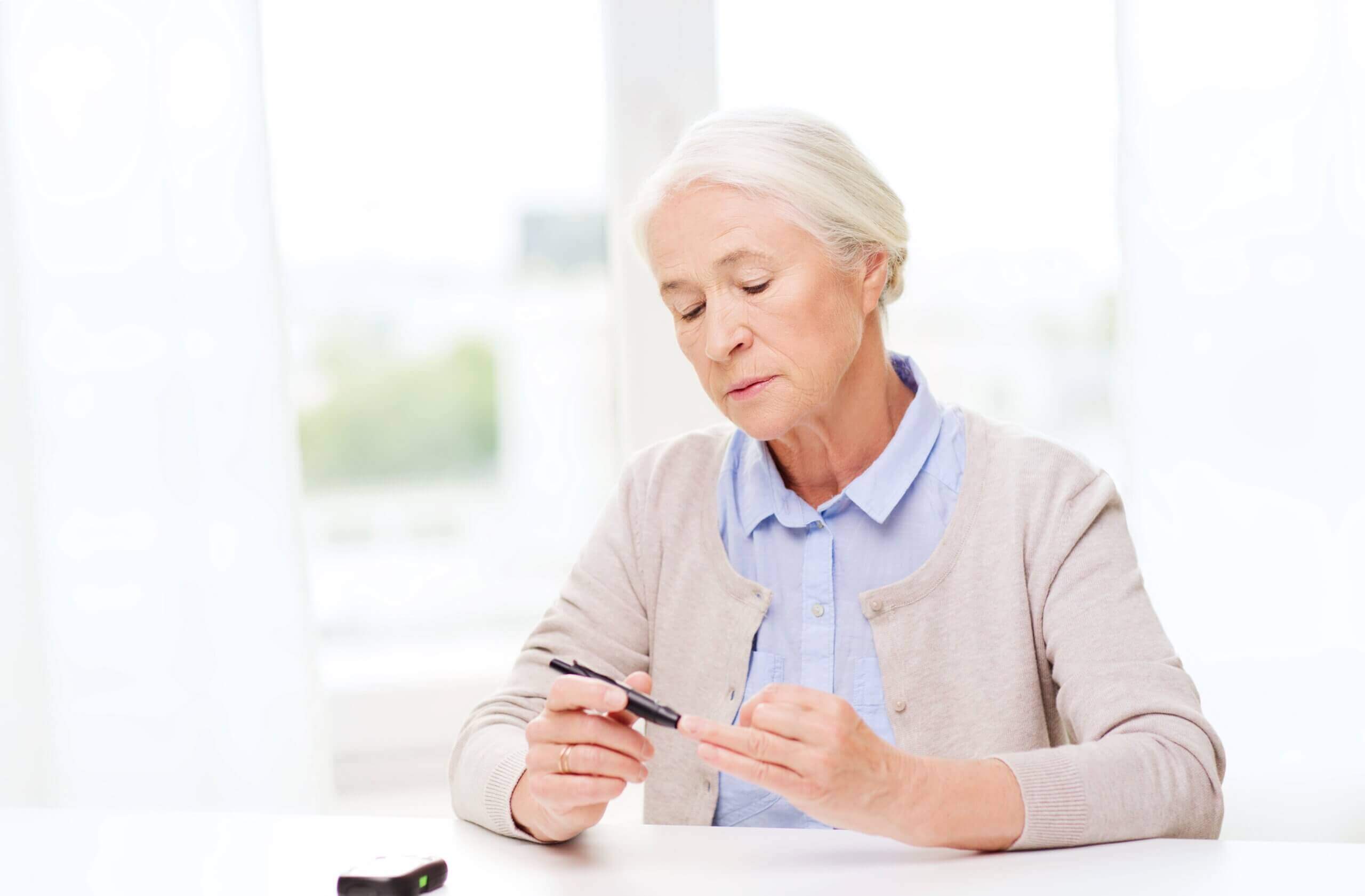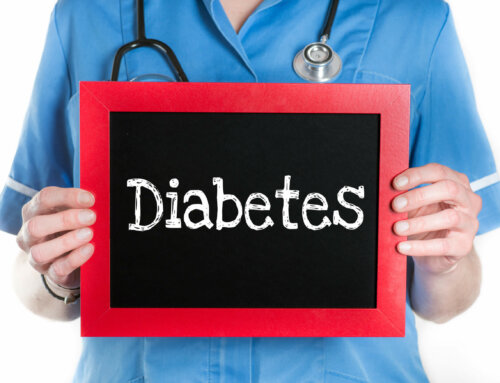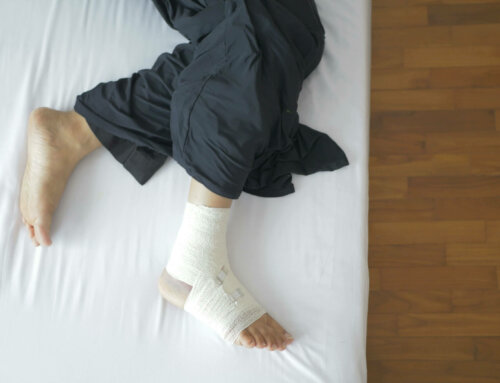“Approximately 47 million seniors live in the US with a future projection of 100 million Americans 65 or older by 2060.” According to the CDC “the rapid expansion is explained by the baby boomer generation and their longer life spans. Currently, the average American lifespan is 78 years old, with women still living longer than men.
There are currently 3 groups of aging adults: the young elders-65-74, the medium elders-75-84 and the old elders-85 and up. Women tend to live less risky lives including less exposure to guns and knives, not riding motorcycles or serving in combat. Even with the lack of these habits, the gender gap longevity difference is finally shrinking.
The leading cause of elder death remains “serious injuries and death due to falls.” The things that can help lengthen life spans for seniors are: access to quality healthcare, prevention and/or management of obesity and zero tobacco use.
Seniors continue to move to warmer states including Florida, California, Arizona and Texas to obtain an easier and more convenient lifestyle. By 2040, those 65 and older will make up about 22% of the population.
Although the senior population continues to grow, the geriatricians (specialists in elder care) trained to care for them are retiring faster than new doctors training to take their places. There is already a shortage of primary care physicians who provide the mainstay of care to older adults.
Why is this?
- Physician burnout – increased significantly since COVID-19.
- The primary care, internist or geriatrician treats the “entire patient” which makes it more challenging and time consuming.
- Primary care and geriatricians do not have a “procedure or test to constantly perform” allowing for more billing.
- Primary care physicians get a lower reimbursement rate.
- Physicians spend more time on documentation instead of patient care.
What exactly is a geriatrician?
Medical geriatricians are primary care specialists for the specific population of those over 65. They specialize in the complicated medical and social problems of seniors. “Generally, seniors already have 1-2 chronic medical conditions which require more time to manage” on top of new problems. Chronic diseases progress, which makes their care much more complicated.
Older Americans have more chronic and acute situations. They usually take more medications, may have memory issues as well as mobility problems. Their financial situation may also be unstable making treatment and proper nutrition unaffordable.
What is team-based primary care?
Team-based primary care practices include health professionals who function as a team to coordinate and improve adult and senior care. Team based care represents the “4 Ps” – predictive, preventive, personalized and participative.
Each professional member offers an expertise that they can give to the patient. They can also easily confer within the practice which improves the coordination of care. Included would be the geriatrician, possible residents, interns and medical students, nurse practitioners, physician assistants, dietitians, physical therapists, social workers, psychologists, pharmacists, occupational therapists and speech pathologists.
What is preventive geriatrics?
Preventive geriatrics helps each patient achieve and maintain “high levels of health and function and maximize life expectancy.” It includes preventive screenings, education and management along with all other aspects of care.
Preventive geriatrics focuses on chronic disease management such as diabetes, high blood pressure, elevated cholesterol, chronic obstructive pulmonary disease-COPD, Alzheimer’s, Parkinson’s as well as coronary heart disease. It alerts seniors to be aware of skin cancer, colon cancer, breast cancer and prostate cancer with proper screenings. It includes eye screenings for cataracts, macular degeneration, and glaucoma. Hearing tests and balance tests are also performed.
Senior Vaccines
Preventive geriatrics focuses on seniors and their physicians navigating their annual vaccines during Sept/October of each year – flu, COVID, RSV, updating vaccines for shingles, pneumonia and tetanus. “Vaccines have changed modern medicine leading to an impressive 99% decline in the incidence of more than a dozen potentially deadly diseases” according to the World Health Organization (WHO).
New this year and approved by the FDA in May 2023, is a vaccine for RSV (respiratory syncytial virus), a growing respiratory threat, which hospitalizes as many as 160,000 older adults each year. RSV affects the lower respiratory tract and can be life threatening in seniors. RSV causes as much illness as the flu and now there is finally a vaccine for seniors over age 60.
The RSV vaccine should be taken first during the fall season since “data indicates that the protection it provides should extend longer into the winter season and may even extend into next winter season.” It is advised that you receive the RSV vaccine alone and wait a couple of weeks before receiving any other vaccines.
COVID rates have increased nationwide- especially in the Southeast since the beginning of the fall season. The new COVID booster was also recently approved by the FDA and is currently being offered at drug store chains, large box stores as well as some physician offices. It targets the newest strain-XBB.1.5. Although not more dangerous, it is easier to catch.
If you do develop COVID, recover and wait 3 months before getting the next booster. You can receive the COVID booster, and the flu shot at the same time but do use opposite arms. According to epidemiologists “There is no maximum number of vaccines you can get at same time as long as you are willing to experience sore arms.”
Your physician and pharmacy as well as you should keep an active list of vaccines and when they are due. “A vaccine does not become less potent when it is delivered in a group of immunizations.” Your immune system can sort out the protein fragments or MRNA as separate entities. Bundling vaccines makes it easier on you and more apt for you to get all needed vaccines just because of time and convenience.
Side effects and treatment
If you have had many side-effects from vaccines in the past, do plan on spacing them out and rotating arms. Besides sore arms you may experience excessive fatigue. Rest periods and sleep will make you feel better. A slight fever may also occur after a vaccine.
Taking Tylenol, not ibuprofen, and drinking extra fluids may be all you need to do. According to the US Department of Health and Human Services, “serious side effects from vaccines are extremely rare affecting only 1-2, per million doses.”
Which symptoms are considered serious?
- Difficulty breathing
- Swelling of the face, lips or throat
- A fast or irregular heartbeat
- A severe rash all over your body
- Dizziness, nausea, or weakness
- Passing out
Call 911 or report to the closest ER you can. You may personally question the effectiveness and safety of vaccines, so consult your own physician to decide which one or ones you will take. Remember, immunization protection is a “modern day gift” which we often take for granted and is especially important for seniors and people with diabetes.
Preventive geriatrics also offers nutrition education and instruction as well as thoughts on lifestyle changes. It may even include an exercise program as well as health topic lectures and cooking classes.
Medication management
“The captain of the ship” should be the geriatrician, prescribing and watching all medications and deciding which or the combination of some, may lead to harm. All specialists may prescribe some medications at different times but when combined with existing medicines may cause side-effects. The geriatrician should be the coordinator.
“28% of seniors age-50-80 report taking 5 or more prescription drugs.” 80% of seniors would be open to dropping any medication with advice and permission from their doctor. Diabetes may become more complicated as you age and more difficult to manage. Instead of taking just a pill you may need to add an injection such as a GLP-1 or insulin.
You may now need multiple daily insulin injections or wear an insulin pump. You may need a continuous glucose monitor instead of a single finger stick or several daily finger sticks. Sometimes, medication for another new condition may interfere with your diabetes medication.
Having a physician advocate can put your mind at ease and prevent complications from being “over-medicated” down the line. Elderly people may not metabolize medications as they did when they were younger.
Ongoing senior care
Not only are medical issues important but geriatricians need to address problems outside the scope of usual medicine. Physicians should deal with how you feel physically, emotionally and mentally. Although you may feel certain discussions are too personal, they are still part of the “patient-doctor relationship.” They need to discuss isolation, housing and transportation with you.
Isolation
Loneliness and social isolation in older adults are serious and common public health problems which are often overlooked by their health care provider. “Nearly ¼ of adults aged 65 and older are considered to be socially isolated.” There is a difference between loneliness and social isolation.
Loneliness is the distressing feeling of being alone or separated even with social interactions and contacts. Social isolation is when you lack contact with others. Isolation can easily happen when you age.
Isolation is often higher in the elderly since:
- They often live alone.
- They have lost their spouse.
- Their family has moved away.
- They have a vision or hearing loss.
- They have memory loss.
- Their reflexes are limited or slowed, and they have trouble getting around.
- They have incontinence.
- They fear falling and stay put in their home.
Social isolation increases a persons’ risk of premature death. “Social isolation is associated with a 50% increased risk of dementia, a 32% increased stroke risk, and 29% increased risk of heart disease. Longer hospitalizations, weakened immune systems, more obesity and high blood pressure along with more depression, anxiety and higher levels of suicide.”
The emotional stress of isolation leads to drinking more alcohol, doing less exercise and experiencing poor sleep, all leading to more inflammation and more chronic disease. Social isolation affects your ability to pay bills, cook and clean, eat your meals, and take your medications, which are all part of daily life.
Since physician appointments may be the only social connection, health care professionals should be aware and help identify seniors who have isolation issues to prevent future medical problems.
Lack of transportation
There are seniors who lack proper transportation for multiple reasons. Included would be cost/payments for the vehicle, price of car insurance as well as car maintenance. Other common reasons include: reduced vision, reduced hearing, memory issues and mobility problems.
Without your own vehicle, there may also be lack of access to decent public transportation. This prevents you from purchasing your groceries or medications, attending follow-up health care appointments as well as preventative medical appointments. Health care providers need to be aware of your situation and offer suggestions for easy fixes.
There are aging organizations which may be able to recommend services for you as well. Look into AARP, Area Agencies on Aging, Eldercare locators and the National Council on Aging.
Stay connected even without transportation
There are ways to stay connected even without transportation.
Take online classes or lectures. Start a book club or discussion group in your building, complex or development. Make a Zoom or Skype call to old friends. Find a community or senior center in your area. Consider a faith-based group near you. Find a diabetes support group near your home. Start a walking club. Get a dog and walk them. See if your complex has clubs or group activities in the clubhouse. Many complexes and developments have day trips to parks or shopping areas and provide transportation. Go to the public library. Join a matinee movie club. Help and visit a neighbor regularly. Volunteer or find a part-time job close to home. Find a carpool group in your area. Take an Uber or Lyft to a special event if you can afford it.
Isolation for seniors is dangerous for both mental and physical health.
The Future
The next 5-10 years will be crucial to see if we can find more ways to empower seniors. Instead of entering the hospital, even acute care services will hopefully be provided in your own home. “At home” medical care makes it more pleasant and convenient for seniors.
Since the senior population is so large and continuing to grow at a rapid rate, more focus should be given to them to provide better services. Connecting primary care to hospital care and long-term care in a seamless manner for the aging will be the wave of the future.
Your medication and morning coffee
Many seniors have 1-2 cups of coffee in the morning, if they are coffee drinkers. Coffee is a stimulant. Some of us even swallow our morning “pills” with a few sips of coffee. “Coffee can significantly affect the absorption, distribution, metabolism and excretion of many drugs taken by seniors.”
Coffee can raise your insulin levels and blood sugar levels. It increases the release of adrenalin which causes the liver to release stored glucose. This provides an energy boost but can also raise the amount of that glucose (sugar) entering the blood stream.
Caffeine can also lower your insulin sensitivity. Caffeine affects do differ from person to person. Keep track of how it affects you and how much caffeine you are drinking. Remember, do not take these specific medications with your morning coffee: thyroid, asthma, blood pressure, diabetes, osteoporosis, cold and allergy and Alzheimer’s drugs.
Your body will absorb less of these medications when taken with coffee and you will not achieve the desired results needed from with these medications. Also watch what you add to your coffee. Pumpkin spice and hazel nut creamers are delicious but full of sugar and fat.
Flavored syrups add calories and will raise your blood sugars. Honey, brown sugar and Agave may sound healthy, but they will all spike your blood sugars. Stick to low fat milk or a flavored creamer that is low in sugar for the best results with your blood sugar. Take your medications with a full glass of plain water.
What other tips are good for seniors?
Sleep tends to be problematic as you age. Insomnia is the most common sleep disorder in those over age 60. Although you do not require as much sleep as when you were younger (at least 7 hours), many seniors have trouble falling asleep and staying asleep. Seniors tend to go to sleep at an earlier hour and get up earlier than when they were younger.
Waking up daily, not feeling well rested and cranky, is a sign of poor or lack of sleep. Lack of quality sleep leads to memory problems, more accidents including falls and depression in older adults. Good sleep restores your brain power and your immune systems’ health.
Reasons for poor sleep as we age:
- Sickness
- Pain
- Medications
- Menopause
- Sleep apnea
- Restless leg syndrome
- Periodic limb movement disorder
- Rapid eye movement sleep behavior disorder
- Parkinson’s
- Alzheimer’s
- Arthritis
- Partner snoring
Natural methods to improve sleep for seniors
- Eat a handful of no salt walnuts/almonds about 30 minutes prior to bed. Salt can disrupt your sleep cycle. These nuts offer protein and magnesium to satisfy hunger and cravings. They also contain “natural melatonin” which may assist with sleep. Melatonin regulates your internal clock and signals your body to prepare for sleep. According to The Cleveland Clinic, “dry roasted almonds (about 1 ounce equals24 nuts) contain 80 mg of magnesium which allows for longer and improved sleep.”
- A square of 70% or higher dark chocolate is lower in sugar and a better snack as far as candy is concerned with diabetes. Do not eat at bedtime since it does contain some caffeine. It does contain antioxidants and the fat content satiates you.
- Plain Greek yogurt contains natural melatonin which improves sleep efficiency and reduces time spent awake. Add chopped nuts, cinnamon or vanilla extract for more flavor and benefits.
- Roasted chickpeas or garbanzo beans are nutrient-dense, low calorie, high in fiber, vitamins and minerals, all nutrients needed for seniors. Roast them yourself in the oven on parchment paper with a tablespoon of olive oil for 20-30 minutes at 400 degrees.
- Kiwi fruit contain serotonin, a brain chemical that regulates sleep. Eat with a small piece of cheese or handful of nuts with the kiwi for blood sugar balance.
- Reduce bright lights at bedtime since “bright lights can reset your internal clock” and make it more difficult to sleep.
- Eat your evening meal at least 3 full hours before bedtime.
- The bedroom temperature should remain on the cooler side. The bedroom should be dark.
- Consider white noise (background noise) if you have tinnitus which keeps you awake.
- Try supplements with permission from your doctor. Melatonin 3mg or less, chamomile or valerian. Chamomile tea contains apigenin which “may promote sleepiness and reduce insomnia.” Always start supplements with a very low dose.
- Drink passionflower tea prior to bed.
Does Medicare cover “assistance needs” as you age?
At some point as we age, “about 60% of seniors will need assistance with simple things such as getting dressed, driving to appointments, or making meals.” Medicare does not supply these services. Although long term care is associated with nursing homes, most older people will want to remain in their own home.
If you have a long-term policy, see what the benefits offer. Policies become more expensive if you purchase them as you age. Depending on your current health and pre-existing conditions, you may not be entitled to purchase a long-term health care policy. If you have limited income/resources, you may be entitled to state programs which can assist with some of the costs.
Do your planning before the situation becomes an emergency. There are elder attorneys who can help you with future planning. Ask family members and close friends for advice.
Cognitive improvements in seniors
Seniors are more at risk for mental health issues and cognitive decline. Many conditions are treatable with medication and therapy. Mood disorders as well as brain decline is common the older you are. There are natural ways to prevent or slow this process.
“Mind-body” practices such as yoga and Tai Chi, and Qi Gong can be added as “preventative therapy” to help with stress reduction, improved sleep, reduced inflammation and provides neuroplastic brain effects.”
Other ways to keep your “neuronal connections” strong are: staying social, learning a new hobby, playing a musical instrument, learning a foreign language, caring for a pet, volunteering, playing cards or chess, learning ballroom dancing, sewing, gardening, taking adult education classes or doing puzzles or number games.
Falls and seniors
Falls are the leading cause of fatal and non-fatal injuries for those 65 and older. “One in three seniors fall, and one in five of those falls results in a serious injury.” Falls often result in broken hips, fractured bones and head injuries. This can rapidly lead to disability and loss of independence.
Falls may trigger a cascade of more serious events. Many seniors are on blood thinners which makes falls riskier and more serious. Being prepared is critical.
Your health care provider has several simple tests to assess your current risk of falling, including the “chair stand.” It involves sitting in a straight back chair and rising to a standing position without using your arms. “Taking longer than 16.7 seconds to complete 5 repetitions indicates an increased risk of falls.” This can improve with strength and balance exercises.
Questions that need to be asked about fall risks:
- Are you or your loved ones concerned or worried about you falling?
- Have you recently fallen?
- Do you currently experience dizziness or balance issues?
- Is your vision poor, do you have low vision, is your eye glass prescription up to date?
- Do you wear bifocals or progressive glasses?
- Do your glasses have a color tint that makes it more difficult to see?
- Do you wear proper UV protection sunglasses?
- Do you have grab bars near the commode and in the tub/shower?
- Do you have a shower seat?
- Do you use a cane or walker? Do you use them the correct way? Are they positioned high enough?
- Have you removed all area rugs?
- Are the stair rails secure in all areas?
- Do you hold onto furniture to navigate the room?
- Is your bed height extra high?
- Do you have an elevator? Do you need an elevator?
- Can you balance on one leg for at least 20 seconds?
- Do you experience vertigo in your inner ears?
- Can you easily get up from a chair? Do you need to push yourself up and out of a chair?
- Do you feel unsteady when you walk?
- Do you have easy access to a lamp on your bedside table?
- Do you have night lights in your hallways and bathrooms?
- Do you have neuropathy or numbness in your feet from diabetes?
- Do you have foot deformities from diabetes or foot drop?
- Do you have cataracts, glaucoma or diabetic retinopathy which effects your vision?
- Do you take medications that make you feel weak and lightheaded?
- Do you drink too much alcohol?
- Do you have diabetes and skip meals which makes your blood sugars drop with symptoms of dizziness, shaking and lightheadedness?
- Do you have bowel or bladder problems that make you rush and run to the bathroom?
- Do you have a heart arrhythmia like atrial fib which can make you dizzy, tired and lightheaded?
- Do you have a low oxygen saturation level or COPD which may make you feel dizzy or lightheaded?
- Are the outside sidewalks, cracked, uneven or raised?
- Do you live somewhere with a winter climate affected by snow or ice?
- Do you wear slippers or socks with grips when you are in your home?
- Do you take sleep aids either prescription or OTC which may affect your level of grogginess and balance?
What can I do to avoid falls?
- There are community-based balance programs. Check with Area Agency on Aging in your community. A Matter of Balance and Stepping On are 2 examples.
- Request physical therapy for balance and strength exercises.
- Build up and have strong and powerful muscles along with a strong core.
- Use real life exercises like getting up from a chair, climbing stairs, getting in and out of a car or in and out of a bathtub to increase your abilities.
- Work on lunging, turning, pivoting and reaching and be progressive in these movements. Do not continue to do the same routine. Keep advancing it. Regular walking does not reduce fall risks. It does build up your aerobic capacity and may lower your risk of chronic diseases.
- Get an annual vision and hearing test.
- Do a home assessment and safety check for loose and dangerous objects.
- Wear flat, proper fitting, sturdy, non-skid sole shoes and socks.
- Wear slippers with grips in your home.
- Keep all necessary things within reach such as: phone, books, remote control, flashlight, water, snacks.
- Install a raised toilet seat.
- Clean up spills quickly.
Seniors are a group with special needs and concerns, especially when you have diabetes. Learn as much as you can and stay ahead of problems that might occur. Use your knowledge and strength!
References:
- https://www.webmd.com/diabetes/diabetes-and-caffeine
- https://www.medpagetoday.com/opinion/second-opinions/106204?xid
- https://www.everydayhealth.com/diet-nutrition/bedtime-snacks-help-you-fall-asleep/
- https://www.medpagetoday.com/opinion/second-opinions/106179
- https://www.acponline.org/practice-resources/patient-and-interprofessional-education
- https://www.everydayhealth.com/type-2-diabetes/questions-to-ask-about-stepping-up-treatment/
- https://www.medpagetoday.com/opinion/wiredpractice/106171
- https://www.health.com/medications-to-not-mix-with-coffee-7561446
- https://www.medicinenet.com/digestive_diseases_can_take_toll_on_seniors/news.htm
- https://www.healio.com/news/psychiatry/20230720/yoga-may-improve-cognitive-function-in-older-adults-at-risk-for-decline
- https://www.everydayhealth.com/infectious-diseases/is-it-safe-to-get-multiple-vaccines-at-the-same-time/
- https://www.medpagetoday.com/infectious-disease/covid19vaccine/106276
- https://acl.gov
- https://www.seniorliving.org/statistics-about-seniors/
- https://eldercare.acl.gov/Public/Resources/LTCP.aspx
- https://www.cdc.gov/aging/publications/features/lonely-older-adults.html
- https://www.prb.org/resources/fact-sheet-aging-in-the-united-states/
- https://www.nia.nih.gov/health/loneliness-and-social-isolation/loneliness-and-social-isolation-tips-staying-connected
- https://www.nia.nih.gov/health/sleep/good-nights-sleep







Leave A Comment